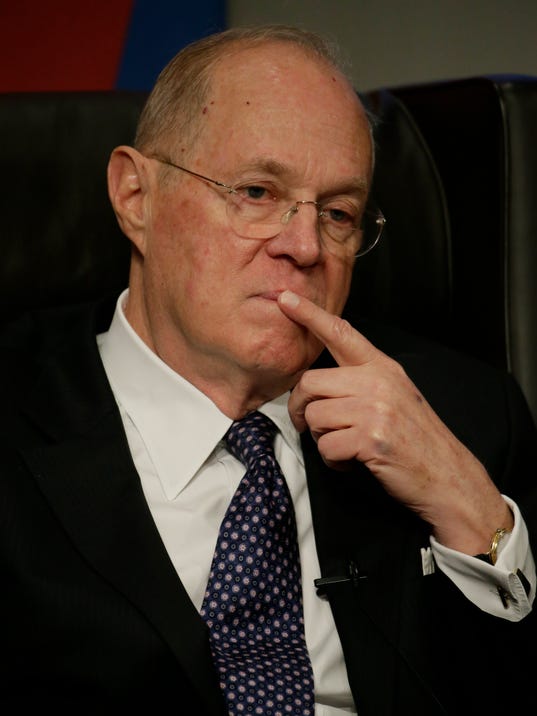When President Obama was first running for office in 2008, he promised that he'd go about "fundamentally transforming" America once in office.
But it wasn't the 47-year-old Senator from Illinois — who went on to win two presidential elections — who'd bring about such a transformation. It was a 78-year-old unelected Supreme Court justice from California named Anthony Kennedy.
That, at least, is the conclusion one can draw from a compelling column in the Sunday Washington Post by legal scholar Jonathan Turley about Kennedy's Obergefell v. Hodges decision.
Turley notes that Kennedy, pretty much all on his own, has fashioned over the years the idea that there's a "right to dignity" embedded in the Constitution.
"Kennedy wove this concept of protected dignity through a series of cases," Turley explains, which "peaked with Obergefell, which he described as an effort by the petitioners to secure 'equal dignity in the eyes of the law.'"
 |
| What Next for the so-called Right to Dignity? |
(By the way, Turley supports gay marriage and is generally a liberal on other issues.)
The problem, Turley notes, is that Kennedy's inferred right to dignity could easily conflict with the First Amendment's stated rights to free speech and free exercise of religion.
"Should the right to dignity trump free speech and free exercise?" Who knows, Turley says. It will up to the courts to decide.
We already know what will happen if it does go that route.Read the rest of this IBD op-ed HERE.
If you like what you see, please "Like" us on Facebook either here or here. Please follow us on Twitter here.



No comments:
Post a Comment